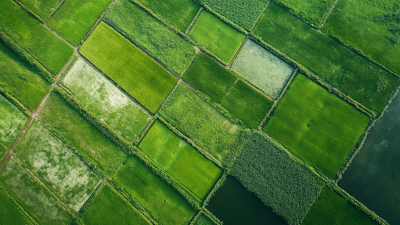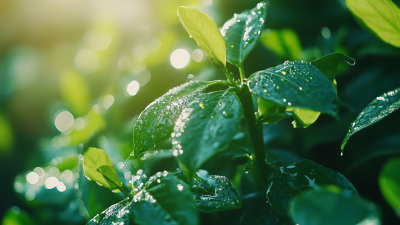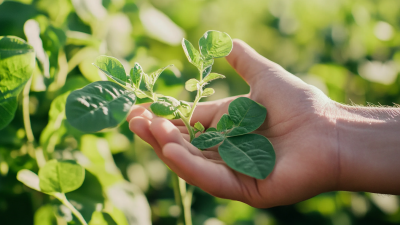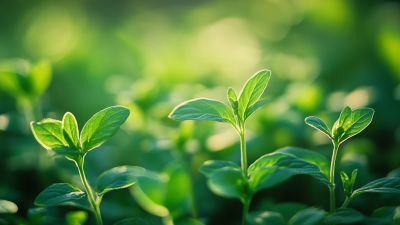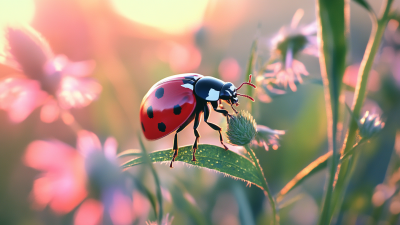 0551-68500918
0551-68500918 





Hey there! You know, the world of agriculture is changing super fast these days, and the need for smart, eco-friendly Crop Protection Solutions is now more important than ever. At Innovation Meiland (Hefei) Co., LTD., we're really leading the charge on this front, diving into research and development of fresh pesticide products, cool formulations, and some pretty advanced processes. We're all about innovation, not just to help farmers keep those pesky pests and diseases at bay but also to make sure we're thinking about the environment and food security too.
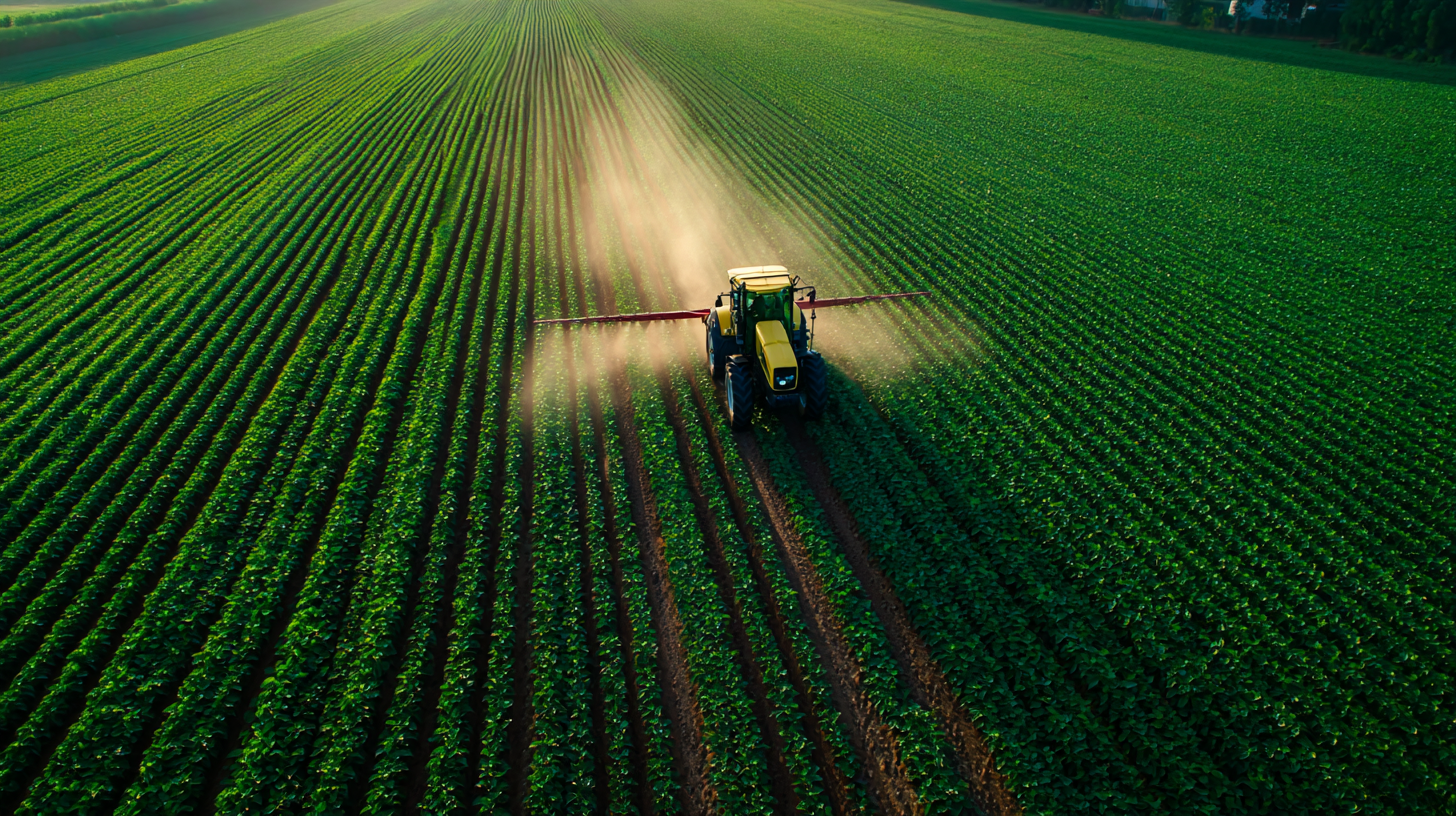
In this blog, we're going to chat about some creative strategies for nailing down the best crop protection solutions. You'll see just how committed we are to boosting agricultural productivity while tackling the challenges that come with modern farming. So, come along with us as we explore how innovation can really shake things up in crop protection and help pave the way for a sustainable future in agriculture!
You know, the world of agriculture is really changing right now, thanks to some amazing new technologies that are shaking up the way we protect our crops. Researchers have been digging deep into how plants defend themselves against pests, and it turns out they’re discovering some pretty cool stuff. Take RNA-based agents, for example—they’re giving farmers fresh, high-tech ways to tackle nasty crop viruses like the Cucumber mosaic virus. So, getting to know these plant defense strategies better could mean we end up with tougher crops, which is a big deal for food security around the world.
Then there’s precision agriculture, which is honestly a total game-changer! It's helping farmers use resources more wisely, all while ramping up those crop yields. I mean, techniques like soil moisture mapping and fancy crop spraying are really doing the trick. Farmers using drones, for instance, have seen their yields jump by as much as 20%—can you believe that?
For farmers eager to jump on these innovations, I’d say investing in some solid training for those precision ag tools is a smart move. Keeping up with the latest plant resilience research is also super important. Plus, teaming up with tech companies that are working on autonomous systems might just give you some helpful insights and make the transition to these advancements a bit smoother. Embracing all this tech isn’t just about protecting crops—it’s also a step towards more sustainable farming practices.
So, let's talk about Integrated Pest Management, or IPM for short. It's really a game-changer when it comes to protecting our crops while also keeping the environment in mind. Instead of just relying on chemicals, IPM takes a more holistic approach, mixing in all sorts of methods—like biological controls, cultural practices, mechanical fixes, and yeah, some chemicals when absolutely necessary. The whole idea is to keep pest numbers low while ensuring our crops are thriving. It’s pretty neat because it creates a more balanced ecosystem that not only supports farmers but also benefits biodiversity out there.
One of the coolest things about IPM is how it pushes farmers to keep an eye on their crops. Monitoring for pest activity is key! They really need to check things regularly and figure out when it’s time to step in and do something. This smart way of doing things helps cut down on the amount of pesticides they need to use and also tackles the problem of pests becoming resistant to those chemicals. Plus, education is a huge part of making IPM work. When farmers team up with agronomists and entomologists, it leads to better practices and a more sustainable farming system that's good for everyone involved. By putting ecological balance front and center, Integrated Pest Management paves the way for farming that’s not just resilient but also respectful of the complex relationships we have within our ecosystems.
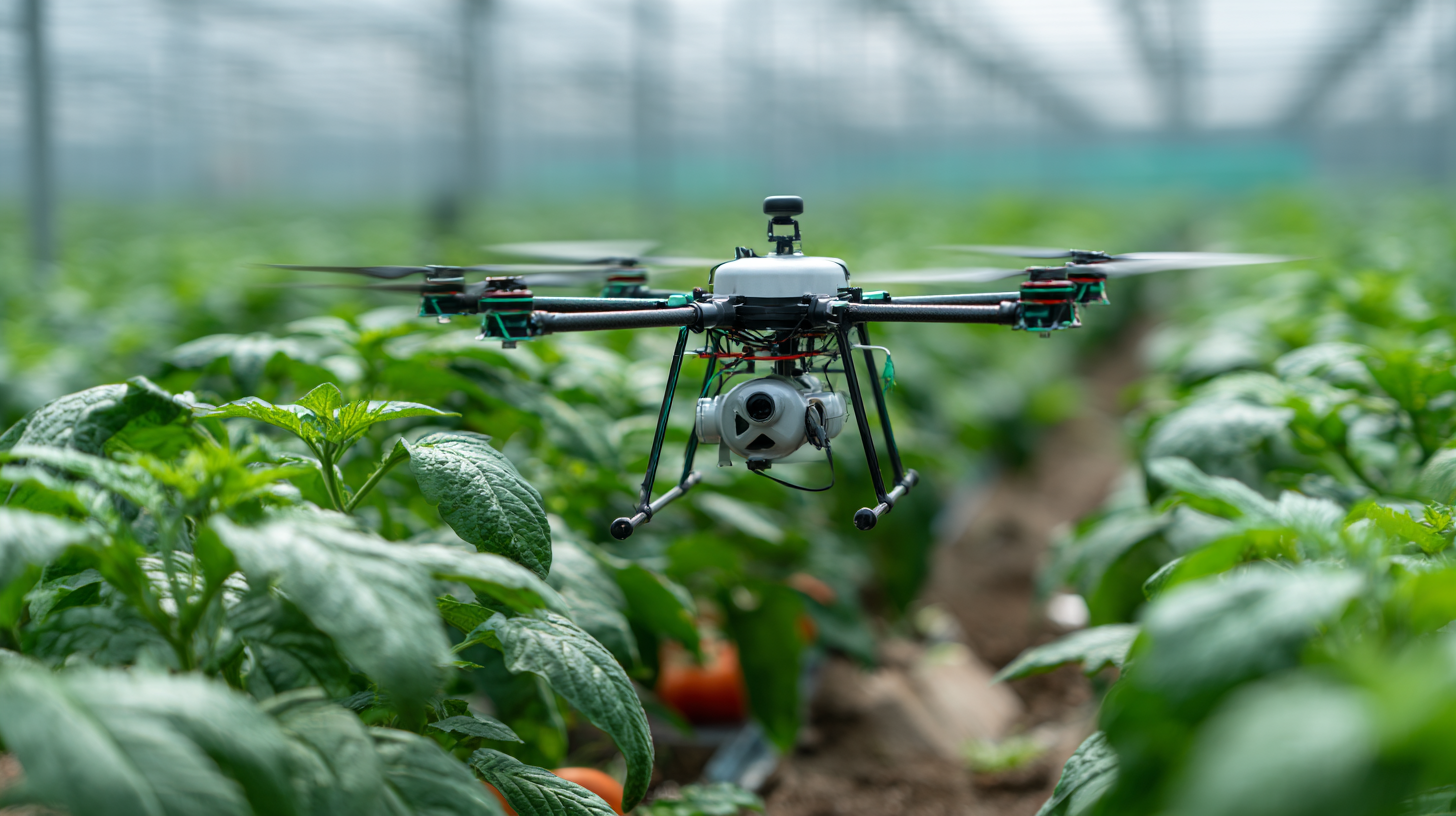
You know, biological control agents are really changing the game in crop protection. They’re all about sustainability and keeping that environmental balance in check. Think of them as our little heroes of nature—beneficial insects, nematodes, and microorganisms—they team up with ecosystems to keep pest populations in line and help us use fewer synthetic pesticides. When farmers tap into these natural allies, they’re not just fighting pests; they’re also boosting soil health and biodiversity, which means stronger and more resilient agricultural systems down the line.
And get this: using biological control methods isn’t just smart, it can actually make the produce better, too! By relying on natural predators to handle pests, crops can end up with lower levels of chemical residues. That’s something health-conscious folks really care about. Plus, in the long run, these strategies can help cut down on production costs by reducing the need for those chemical inputs. As more research uncovers new ways to use biological solutions, farmers are jumping on board with integrated pest management practices. It just goes to show that when you work with nature, everyone wins—farmers, consumers, and the environment alike.
| Biological Control Agent | Target Pest | Application Method | Efficacy (%) | Notes |
|---|---|---|---|---|
| Trichoderma harzianum | Root Rot Pathogens | Soil Application | 80 | Promotes root health |
| Bacillus thuringiensis | Lepidopteran Pests | Foliar Spray | 90 | Natural insecticide |
| Entomopathogenic Nematodes | Soil-Inhabiting Insects | Soil Drench | 75 | Effective against various pests |
| Predatory Mites | Spider Mites | Release in Crop | 85 | Provide continuous pest control |
| Neem Extract | Aphids | Foliar Application | 70 | Repels and disrupts feeding |
You know, precision agriculture is really changing the game when it comes to how we protect crops. It's all about using data and the latest tech to make it happen. With cool stuff like the Internet of Things (IoT) and artificial intelligence (AI) stepping in, farmers can actually keep a better eye on their practices. For example, there's this recent study that dives into IoT systems teaming up with AI for real-time monitoring. This setup helps tackle issues like human-wildlife conflicts and is pretty helpful for keeping biodiversity in check. Thanks to all that real-time data, farmers can jump in with timely interventions, which means fewer crop losses and a push towards sustainable farming.
On top of that, when we talk about agricultural data analytics, we're seeing some serious improvements in how efficiently crops are produced and the economic side of things, too. Reports show that using smart sensors and machine learning can really optimize resource use, helping to apply inputs just right. By tapping into these technologies, farmers can boost their crop yields without putting too much strain on the environment. Companies like Innovation Meiland are leading the charge in this space, putting money into research and development for new pesticide formulas and techniques that fit perfectly with this precision agriculture movement. As farming keeps evolving, these data-driven solutions are going to be super important for practicing sustainable farming and protecting crops in an effective way.
When it comes to finding effective ways to protect our crops, sustainable practices are really becoming the backbone of today’s farming. I mean, let’s face it: relying too much on Chemical Pesticides has got people worried about the environment and the quality of our soil. But here’s the good news—by using more sustainable methods, farmers can cut down on those chemicals while still getting great crop yields. Techniques like crop rotation, intercropping, and even letting beneficial insects do some of the work can really help keep the ecosystem in balance.
**Tip 1:** One fantastic way to reduce pesticide use is to adopt integrated pest management (IPM) strategies. By keeping an eye on pest populations, farmers can target their treatments instead of just spraying everything in sight. This not only helps with crop health but also keeps our biodiversity intact.
Another cool idea? Organic farming principles! Using organic fertilizers and natural pest repellents not only boosts soil fertility but also aligns with sustainable ecosystems. Plus, doing things like mulching and planting cover crops can fend off pests while naturally enriching the soil, leading to healthier crops.
**Tip 2:** Oh, and don’t overlook companion planting! It's where you grow specific plants next to each other to naturally keep pests away. Not only does this reduce the need for chemicals, but it also builds up a more resilient farming practice. By embracing these eco-friendly methods, we can totally move towards a greener approach to taking care of our crops.
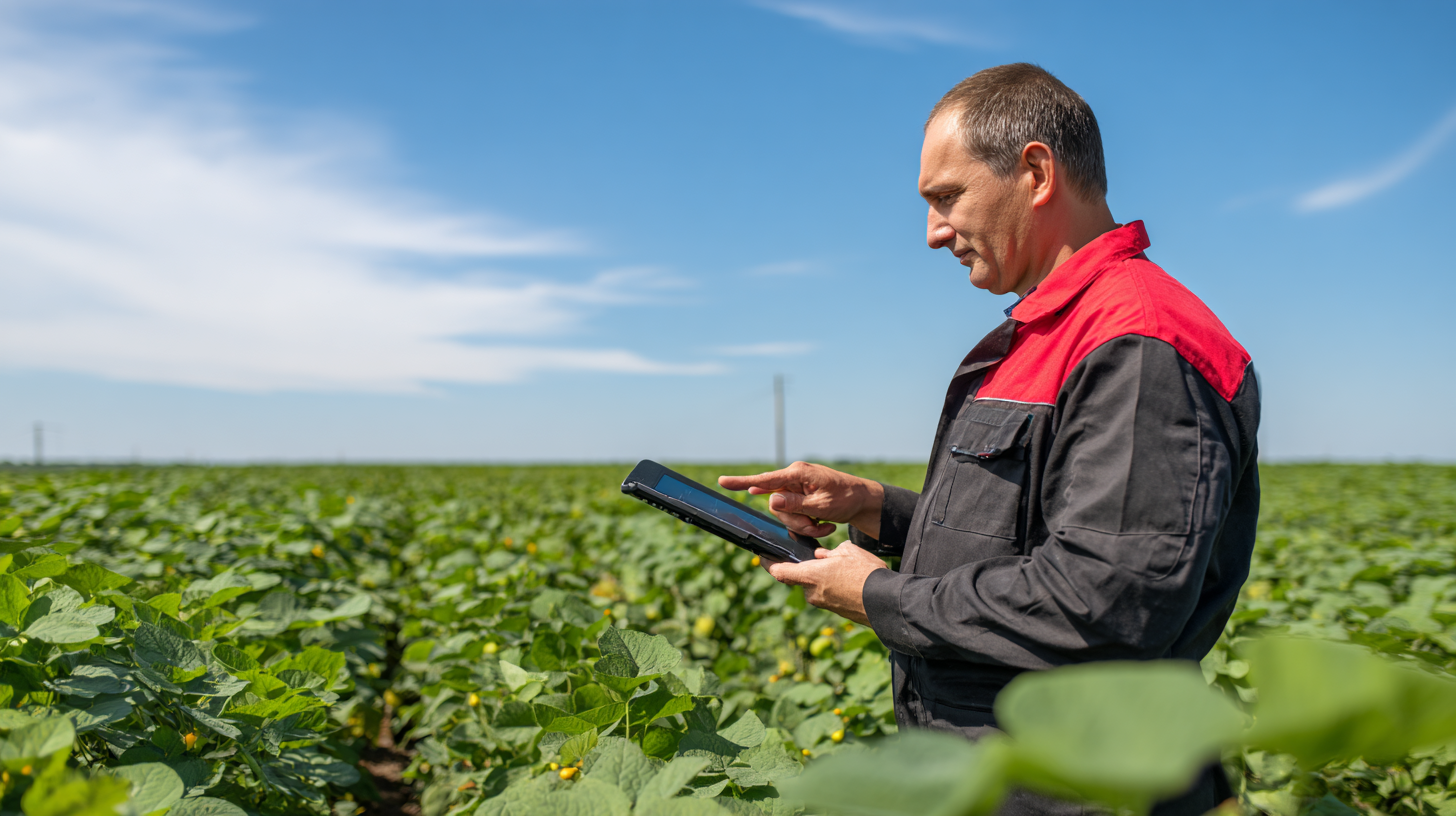
You know, regenerative agriculture is really starting to make waves as a game-changer. It's not just about cranking up crop production—it's about building some serious resilience in farming systems too. By putting the spotlight on soil health, farmers are embracing techniques like cover cropping, crop rotation, and minimal tillage. These practices work wonders for improving soil structure and boosting biodiversity. As a result, they often see higher yields and end up with crops that can better weather the storms, pests, and diseases that nature throws their way. It’s pretty cool how farmers who use these strategies feel way more ready to tackle the challenges that come with climate change.
Plus, regenerative agriculture really cares about fostering a balanced ecosystem that helps with natural pest management. By stepping up the biodiversity in both their crops and the areas around them, they’re creating cozy homes for those beneficial insects and useful microbes that keep the pests in check. It means they can cut down on synthetic pesticides, which is a win for both them and the environment. As more growers catch on to the long-term perks of these methods, they’re not just looking out for their own crops; they're also playing a part in making our food systems more sustainable overall.
: Emerging technologies in crop protection include RNA-based agents that combat crop viruses and precision agriculture techniques like soil moisture mapping and advanced crop spraying.
Precision agriculture can optimize resource management and increase crop yields, with farmers using drones to report up to a 20% increase in yields.
Biological control agents are natural defenders such as beneficial insects, nematodes, and microorganisms that help regulate pest populations while promoting sustainability and environmental health.
They often result in fewer chemical residues on crops, appealing to health-conscious consumers, and can reduce production costs by lessening chemical inputs.
Sustainable practices include crop rotation, intercropping, the use of beneficial insects, and integrated pest management (IPM) strategies.
IPM is a strategy that involves monitoring pest populations to apply targeted treatments rather than blanket spraying, preserving crop health and biodiversity.
Organic principles enhance soil fertility and support sustainable ecosystems through the use of organic fertilizers and natural pest repellents, along with techniques like mulching and cover cropping.
Companion planting is the practice of growing specific plants together to deter pests naturally, reducing chemical reliance and promoting resilience in farming.

